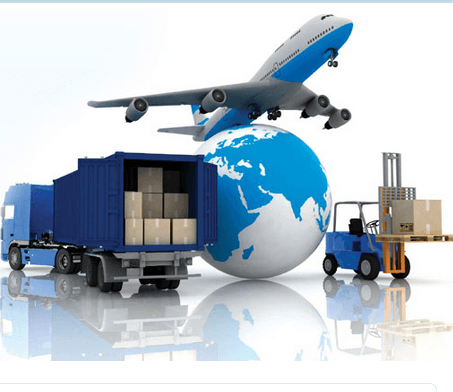How Freight Integration can help your business.

Cargo consolidation is critical to business success and profits due to the enormous profits it must provide. Increased efficiency, faster delivery, and lower operating costs make this an option for small shipments.
With the increase in trade and commerce, the demand for container transportation from the international market is also increasing. Unavailability of containers, heavy traffic, long waiting times, and non-strategic transportation are various factors that have led to higher transportation and transportation costs.
And it is the SMEs (or SMEs) that are most affected by the increased costs. The main reason is the low shipment volume. Shipments fall into one of two categories: less than container load (LCL) or less than truck load (LTL). This means that there aren’t many orders to fully utilize the container, which increases operating costs.
What is the solution to this? Read below for more information.
Solution: Cargo integration and deintegration
Simply put, cargo consolidation is the combination of multiple small cargoes into one large cargo. This means that many companies can work together to use one container or truck for cargo, depending on their requirements. When the integrated cargo arrives at the destination, the integration will be removed. That is, it is split into individual packages and delivered accordingly.
Also, one company can adopt integrated and non-integrated if the cargo goes to multiple different destinations on one route, not just different companies.
The complete process can be thought of as carpooling and has additional benefits directly to all businesses.
- Container port
- Benefits of cargo integration and de integration
- Minimize shipping costs
The higher the volume of cargo, the lower the shipping cost. Therefore, freight consolidation and deconsolidation allows multiple companies (using LCL or LTL) to consolidate their cargo. Therefore, you can avoid the cost of renting a complete container or truck and save on container tariffs and other freight charges.
Table of Contents
Improving the relationship between shippers and carriers
The integration for freight transport also strengthens professional relationships between affiliates by establishing long-term transportation partnerships with affiliates. The relationship between the carrier and the carrier is also strengthened, overhead operating costs are reduced, and the profits of all parties are increased.
Save time and improve efficiency
Considering the total time it takes for each container individually, one integrated container has a shorter shipping time. (Because all goods arrive in one round in less time instead of running 5 rounds per shipment!) Faster shipping times, lower costs, faster waiting times, all for efficiency. be connected. Jackpot!
Better shipping scheduling
Due to the involvement of multiple companies, the carrier is responsible for consolidated shipments. This speeds up the loading process. The integration reduces docking and latency. This will keep your shipping schedule going smoothly.
Freight Integration , Get Happier consumers
Freight integration and deintegration make the entire shipping process faster and more efficient. Therefore, the deliverables reach the consumer faster. Better service attracts them to your business.
Top view of container depot
Risk of cargo consolidation
Integrated and non-integrated strategies involve risk sharing. Some of them are included:
- The shipper may not have the resources or contacts available for integration and non-integration. In that case, they will have to outsource the shipment.
- With several touchpoints and service providers, the whole process can get confused. Different companies have different destinations. This may require multiple loading and unloading of the cargo, increasing the risk of loss or damage.
- Coordination and effective communication can be tedious due to the large number of shippers involved.
- Delays in integration or non-integration can delay overall shipments and delay service and delivery.
- The significant benefits of integration and non-integration outweigh the number of risks. If the shipper chooses a reputable freight carrier or carrier, these risks can be minimized or even completely prevented.
- Efficient freight with the help of proper planning, recorded shipping details, well-established companies, reliable sources, freight carrier liability insurance, and now with the help of smart containers and big data. You can track and ensure safe and secure delivery.
Expand the network
Freight integration and non-integration are the best solutions for low-volume companies looking for cost savings, efficiency, increased productivity, and faster deliveries. Or, the same is true for cargo with different destinations on one route. Finding a trusted partner makes this process much easier.

